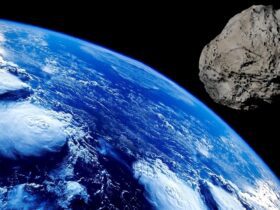For decades, the concept of dark energy has been the cornerstone of our understanding of the universe. The mysterious force, supposedly accounting for about 68% of the cosmos, has been tasked with explaining why the universe is expanding at an accelerating pace. But what if dark energy doesn’t exist at all? What if it’s just a cosmic misunderstanding?
This groundbreaking idea comes from researchers at the University of Canterbury in Christchurch, New Zealand, who recently published a study that could rewrite the textbooks. Led by Professor David Wiltshire, the team proposes that the universe isn’t expanding uniformly as previously thought. Instead, its growth is more chaotic—“lumpier,” as they put it. This revelation shakes the very foundation of our cosmic knowledge and might render dark energy unnecessary.
A New Way to Measure Time and Space
Here’s where it gets fascinating: according to the study, our perception of the universe’s expansion might be skewed by how we measure time and space. Gravity, that ever-reliable force holding everything together, doesn’t just shape space—it slows down time.
Think of a clock inside our Milky Way galaxy. Thanks to the galaxy’s dense gravitational field, that clock ticks slower than one floating in a vast, empty cosmic void. Wiltshire’s research suggests that a clock in our galaxy might run about 35% slower than one in these voids. Over billions of years, these differences in time create the illusion that some regions of the universe are expanding faster than others.
This idea, called the “timescape model,” flips the dark energy hypothesis on its head. As Professor Wiltshire explains, “Our findings show that we do not need dark energy to explain why the Universe appears to expand at an accelerating rate. Dark energy is a misidentification of variations in the kinetic energy of expansion, which is not uniform in a Universe as lumpy as the one we actually live in.”
A Possible Solution to the Hubble Tension
This model also offers a potential solution to another cosmic puzzle: the Hubble tension. Scientists have long been scratching their heads over why different methods of measuring the universe’s expansion rate yield different results. Wiltshire’s theory suggests that the uneven distribution of time across the cosmos could be causing this discrepancy.
The Road Ahead
This isn’t just some wild hypothesis cooked up in isolation. The timescape model is being taken seriously by the scientific community, and new data might soon validate it. With instruments like the European Space Agency’s Euclid satellite, launched in 2023, and NASA’s upcoming Nancy Grace Roman Space Telescope, scientists are poised to test this theory more rigorously.
Wiltshire is optimistic, predicting that “the Universe’s biggest mystery could be settled by the end of the decade.” It’s a bold claim, but one that could fundamentally change our understanding of the cosmos.
A Universe Full of Surprises
If the timescape model holds true, it means dark energy was never real—it was just a cosmic placeholder for something we didn’t fully understand. While that might be disappointing for fans of the mysterious force, it’s also a thrilling reminder of how much we still have to learn.
In the words of Carl Sagan, “Somewhere, something incredible is waiting to be known.” This might just be one of those incredible discoveries—a universe far more complex and fascinating than we ever imagined.












Leave a Reply